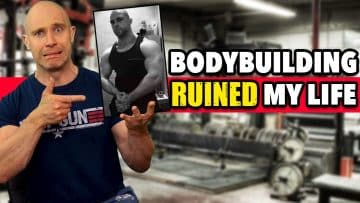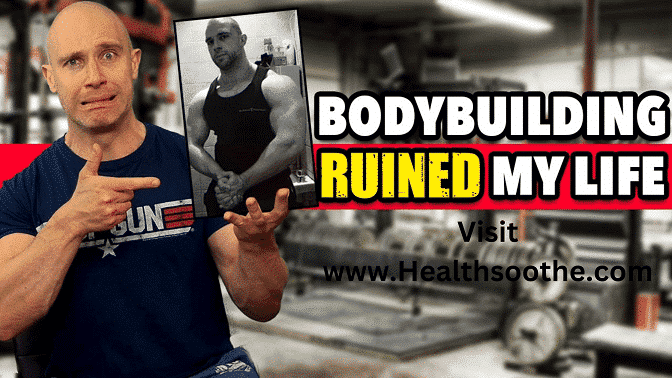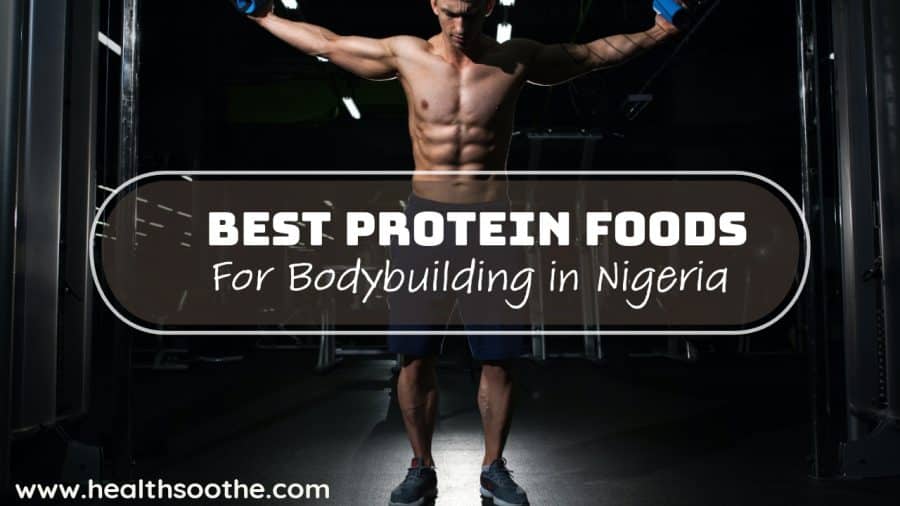Tristyn Lee was a bodybuilding sensation in his teenage years - but it came at a price – ‘Bodybuilding ruined my life’, He said.
Tristyn turned 20 and is on a journey to bulk up. In posts and videos online, he claimed he is heavier and feeling stronger than ever before. But the bodybuilding star opened up on ‘how bodybuilding ruined my life’.1https://www.the-sun.com/sport/6082996/tristyn-lee-child-bodybuilder-diet-training-shredded-weights/
The bodybuilder revealed he maintained four percent body fat for two years. He survived on 1,800 calories a day while working out twice and walking 20,000 steps.
He started the video by saying: "Let's talk about how bodybuilding ruined my life."
Hmmm…like really? The bodybuilding that many people wanna venture to look buff and tough can actually ruin a person’s life.
Are you or your loved one(s) aiming to go into bodybuilding in order to increase your strength, stamina, physique, or to look macho, but you are not sure whether to do this or how to do it because you have heard negative things about bodybuilding and how some people described the whole bodybuilding experience as being awful for them.
Well, don’t worry, we will clarify your doubt and answer all the questions you might have concerning the topic – “How bodybuilding ruined my life”.
This article shows some verified experiences from past and present bodybuilders, how the bodybuilding affected them, and how they coped with it to become hale and hearty again.
My article also covers how bodybuilding can ruin your life, how to fight its side effects, and how to recuperate optimally.
We move!
How Bodybuilding Ruined My Life – How Can Exercises Do This?

In his video, Tristyn explained he used to play soccer and eat 3,000 calories a day while also weightlifting and enjoying life. But the obsession to become shredded led him to cut right down on food until his body fat reached sub-five percent.
He explained: "It started to become this vicious cycle of burn more, eat less, and every single crutch I was using to feel less hungry began to increase." And his social life was affected too, as he wasn't sure what he could eat off a menu without knowing the nutrients.2https://forums.t-nation.com/t/bodybuilding-is-ruining-my-life/39949/6
Tristyn revealed: "I wouldn't let myself go out and have a bite to eat with a friend or go out, because I didn't know the calories in the food." The 20-year-old is now enjoying eating more and getting bigger.
Also, read whatKim Johnson said about why she left bodybuilding:
I did bodybuilding for about 15 years. I remember for years I woke up excited about my workouts. I absolutely ADORED it, as it was a mixture of science, art, and discipline. The changes that I made were amazing. I knew that I would never quit; I could just feel it in my bones.
I was wrong. I left it for a number of reasons.
- I was tired of the attention. While there were many respectful comments, and many people that wanted to learn from me, I got tired of hearing comments focused on my looks. Most people wanted to talk about working out and their diet. I had studied the body’s energy systems, diet, and exercise physiology for years. I didn’t want to spend the majority of my time on it anymore. There are others things in life.3https://www.quora.com/What-are-the-top-3-reasons-people-quit-bodybuilding
- I was tired of seeing the shifts in the type of attention I got from men when I was bulking versus leaning out. To summarize, bulking led to reactions of respect, fear, and then of course the whole “she was so dominant” sexualizing assumption. When I leaned out it was more attention from both men and women. Women were more nice and more friendly overall, and men basically went down the sexualizing route. Seeing this pattern repeatedly for years really shows you how much looks play into the way you are treated.
- I was tired of meeting men into bodybuilding and eventually finding out that dating them was the equivalent of dating a female with an eating disorder (No offense to females with eating disorders, as I’m pretty sure I had one for a bit). Constantly focused on their macros, constantly lifting up their shirts to see if their abs still exist. Constantly evaluating the state of their muscles. They were attractive, but I was never really attracted to them because of this.
- I realized that a lot of people into bodybuilding are essentially “healthy” addicts (including myself back then). Many people get the dopamine hit with all the attention, and they also are able to look away from issues in their life because the bodybuilding lifestyle becomes the center.
- I was tired of all the focus on “positivity” and “aesthetics.” It’s just really superficial and fake.
- I was tired of it being trendy with both women and men focused on sexualizing the glutes specifically. Don’t get me wrong - I like a nice butt as well; however, the focus on it is a bit stereotypical and gross at this point. Not too long ago, I went through a purge of unfollowing fitness models I had followed in the past on IG. I got really tired of opening IG and seeing numerous butts in my face.
- I’m in the process of undergoing the whole “spiritual transformation” deal. For me, I had to let go of something that I associated with superficiality and distraction from issues in life. I still work out (mostly regularly), but my workouts come from a place of gratitude for the body. I don’t have to prove to myself, or others, that I have the discipline and knowledge anymore. I don’t have to have a really hot body to feel better. I am much happier, and much more self-aware. The freedom that occurs once you truly realize you are beyond physicality is wonderful.
Don’t get me wrong - I’m not saying all bodybuilders are superficial and hard up for attention. There are some that exist that are extremely self-aware, and that aren’t “healthy” addicts. However, I found over the years that they are a rarity.
I am still thankful for the journey, as it helped me build a ton of confidence in my abilities. It served its purpose at the time, and I learned so many things while attaining a physique I literally never thought I could have. As I go further down the path of spiritual healing, I may go back to it somewhat; but I know I will never use it in the way I once did. I imagine I’ll also steer clear of the bodybuilding clan, as my mentality just doesn’t match anymore.
From Fedorov91
How Bodybuilding is Ruining my life. Like bodybuilding ruined my life. Plain and simple.
I can’t go have fun with friends because I have to eat chicken breast and oatmeal at ____ o’clock! Not that I have any friends left because I have to eat chicken breast and oatmeal at ____ o’clock!
I can't play street Basketball because it will impede my muscle recovery. I can’t go to the bar because Alcohol will kill my Testosterone levels. I can’t stay up late because my Cortisol levels will shoot through the roof and destroy my muscle gains.
I started Bodybuilding to become more physically attractive and enhance my life but instead, it has taken OVER my life. Ever since I started bodybuilding my social life has been nonexistent.
How can I be a great bodybuilder and still have a great social life? What should I do? How can I balance living a fun fulfilling life without giving up bodybuilding?
I WANT A LIFE!
How Bodybuilding Ruined My Life - The Dark Side of Bodybuilding
Long-term natural bodybuilding will keep you living strong, even until you reach your eighties and nineties. How? Your muscles will still be strong from all those years of lifting.
Strong muscles, tendons, and ligaments are more capable of withstanding stress, and have better balance, thus reducing the likelihood of pulled muscles. Your bones will be stronger and much denser, meaning increased prevention of osteoporosis and bone fractures.
Also, as a result of still having mobility during your later stages of life, you will have better cardiovascular health, more independence, and a better quality of life when you reach your later days.
In addition to the plethora of physiological benefits from long-term bodybuilding, did you know that there are numerous psychological benefits too?
Psychological Benefits of Bodybuilding
Being health-conscious and having healthy eating habits will enhance your quality of life, and these characteristics stay with you long after you stop training. Having a healthy diet is very important in the sport of bodybuilding and is imperative for great muscle gains.
Healthy habits like eating medium-sized portions at regular intervals throughout the day and staying within your daily macros will remain with you forever. Bodybuilding requires great discipline, you can’t get good results if you train intermittently whenever you want.
Years of consistent training and being able to reach arduous yet attainable goals require great patience, dedication, and a good work ethic. You will discover firsthand that hard work pays off, not only in the gym but in life.
This new-found discipline will translate out of the gym and into your work, family, and social life. Reaching your bodybuilding goals will prove to you that anything is possible with hard work, focus, time, and most important a correct mindset.
As a result of all the previous goals you set and were able to surpass throughout your life, you will be quite goal oriented. Achievements don’t happen by accident, it is the result of good planning and hard work.
Set a challenging goal for yourself, give yourself a timeline, track your progress, and reach your goal. That is how goals are reached. Being goal-oriented allows you to get things done quicker and more efficiently.
Years of training will lead to higher self-confidence and self-esteem, not just because you look better, but because you feel more confident about your abilities.
This translates to having a more positive outlook, increased concentration, more enthusiasm, and generally being happier in life. Having this positive energy in turn will let you live a longer and more fulfilling life.
Negative Effects of Bodybuilding
Over time, weightlifting puts a tremendous amount of stress on your joints, tendons, and ligaments. As a result, many bodybuilders have tendinitis, back pains, shoulder pains, and other forms of joint problems.4https://www.a1supplements.com/articles/is-there-a-dark-side-to-long-term-bodybuilding/
These injuries, if left untreated, will remain and significantly get worse. By the end of their career, these problems may become a huge burden on mobility and everyday life.
The elbows, knees, and shoulders take a beating during intense workouts. We may not feel it now, but as we get older, we will start feeling some pain. The reason is that the body produces less and less synovial fluid as we get older (a fluid secreted in our joint cavity and lubricates your joints during movement), thus increasing friction among opposing surfaces of cartilage causing joint pain.
However, bodybuilding doesn’t necessarily translate to joint pain in the future. You can greatly reduce your chances of joint pains in the future if you:
- Stretch and warm up properly before workouts
- Overtraining, either too much volume or short rest days (Basically, not allowing the muscles, joints, tendons, and ligaments… to recuperate)
- Train with heavy weight, low reps
- Avoid Incorrect form - Avoid Lack of nutrition (Omega 3 Fatty Acids can help decrease joint pain. It’s true.)
Unlike sports like basketball, football, tennis, etc; bodybuilding is a sport that allows you to compete well into your fifties, sixties, and even seventies if you want. You just have to make the proper adjustments.
Many top bodybuilders including Chris Dickerson and Frank Zane actually reached their peak after the age of 40. Nonetheless, joint pain is still a very common result of long-term bodybuilding, but the effects can be drastically reduced if you train smart.
Heavy squats and deadlifts can compress the vertebral column and thus compress the intervertebral discs. Naturally, the aging process weakens our discs and can result in chronic back pains, numbness, or decreased range of motion. Constant heavy squatting can actually speed up this process of disc degeneration.
In order to decompress my spine, I normally hang from a pull-up bar after each workout for approximately 60 seconds. This can be done with added weights as well. Try it. It actually feels really good after heavy sets of squats and deadlifts.
Liver damage may occur as a result of excessive supplement use in the past. Your liver is your body’s filter and gets severely damaged if you take too many supplements. Off the top of my head, I’d like to say that creatine makes your liver work extra hard, and without enough water, your liver can be damaged.
To avoid this, research the supplement you are thinking about taking before buying. If you are taking more than 5 supplements, a multivitamin, and protein; then I’d say that you might be taking too many.
Stretch marks can also be a problem after long-term bodybuilding. Even though this isn’t as big a problem as the ones I’ve mentioned above, it may still be bothersome. After growing to two hundred-plus pounds and being massive throughout your bodybuilding days, your muscles will slowly start to shrink.
The severity and speed of muscle atrophy, a typical response to lack of use, will of course depend on your current lifestyle and if you are still active or not. This muscle shrinkage will lead to stretch marks, particularly on the arms, shoulders, chest, and calves. Theobroma oil (Cocoa Butter) can lessen the appearance of visible stretch marks. As I said, it’s not a big concern for most.
As you can see the negative consequences of long-term natural bodybuilding aren’t that bad, especially since most of the negative effects can be greatly lessened with the proper precaution, stretches, and supplements like flax seed and glucosamine for the joints.
The positive benefits greatly outnumber the negative consequences in my opinion, provided you have trained safely and stayed injury free throughout your life, which actually isn’t hard to do if you know what you are doing.
Watch the video below to know more on 'how bodybuilding ruined my life':
The Bottom Line
Read What American_Muscle Says About Bodybuilding – ‘how bodybuilding ruined my life’:
You can be a bodybuilder, and still live a pretty normal life, it just requires a little more planning and preparation. I still go to parties, night clubs, hang out with my friends, go on vacation, etc. I just plan out everything before I do it. Before I go somewhere, I make sure to pack food into sandwich bags and take them with me. I end up eating cold chicken breasts a lot of the time, which isn’t ideal since I prefer to eat food hot, but I’m at least getting my protein and still having a good time.
When I go to parties on weekends, I leave around 1:00-1:30, which isn’t too bad. Then I sleep in until 9:00 the next day. People look at me funny when I whip out a bag of carrots, or almonds, or a chicken breast, but I don’t let that bother me. When I go to night clubs, I bring an MRP with me, chug it down before I go in, buy a couple bottles of water while I’m in there instead of beer of shots. Then when I come home after, I drink another protein shake, take my fish oil and go to bed.
As another example, two girls asked me to go to the beach with them tomorrow. What I’m going to do is, get up at 7:00, eat, take my supplements, go workout, eat my post-workout meal. pack all my food which I have already made, then head to the beach with them around noon. We have about a 45-minute drive to Santa Cruz. When I get there I’m going to eat a cold chicken breast with some almonds.
Then I’m going to boogie board for a while, eat again, and go ride some rides. Eat again, take them for a romantic walk along the beach, eat again. Then go home. It only takes me about 15 minutes to eat one of my little meals, so it isn’t a huge burden or anything.
The positive benefits of bodybuilding greatly outweigh the negative consequences, especially since most of the negative consequences are preventable.
You can check the FAQs section below to know more on the issue of 'bodybuilding ruined my life', and if you have any comments, drop them in our comment section below.
They will become smaller and weaker. If you've been doing high intensity exercise or weight training, you'll find a reduction in your muscular endurance. A detraining period of 12 weeks results in decreased muscle mass and muscular strength, although the muscles can return to pre-training levels. Lifting weights for bodybuilding has obvious benefits too, says Dr Condo. "It's getting people active, it's getting people building muscles and reducing fat, which we know benefits cardiovascular health, bone health," she said. Weight training and aerobic exercise can boost our mind and cognitive wellbeing. Going to the gym can relieve stress, anxiety, and depression. Seeing real results can improve your mood and give you a sense of satisfaction to further progress and develop through fitness. Even if you've never done it before, you can start bodybuilding now. “You can get in shape at any age if you live an active lifestyle and are in good health,” says personal trainer Warren Gendel, winner of the Mr. They're dying at a much faster rate than pro athletes in major sports. Heart and kidney maladies are the disproportionate causes, and performance-enhancing drugs are the principal culprits. Pro bodybuilders are dying under 50 of cardiovascular causes at a shockingly high rate.Frequently Asked Questions About Bodybuilding
What happens if you stop bodybuilding?
Is bodybuilding healthy or harmful?
Does bodybuilding affect mental health?
At what age is too late for bodybuilding?
Do bodybuilders have low lifespan?
Additional resources and citations
- 1https://www.the-sun.com/sport/6082996/tristyn-lee-child-bodybuilder-diet-training-shredded-weights/
- 2https://forums.t-nation.com/t/bodybuilding-is-ruining-my-life/39949/6
- 3https://www.quora.com/What-are-the-top-3-reasons-people-quit-bodybuilding
- 4https://www.a1supplements.com/articles/is-there-a-dark-side-to-long-term-bodybuilding/



